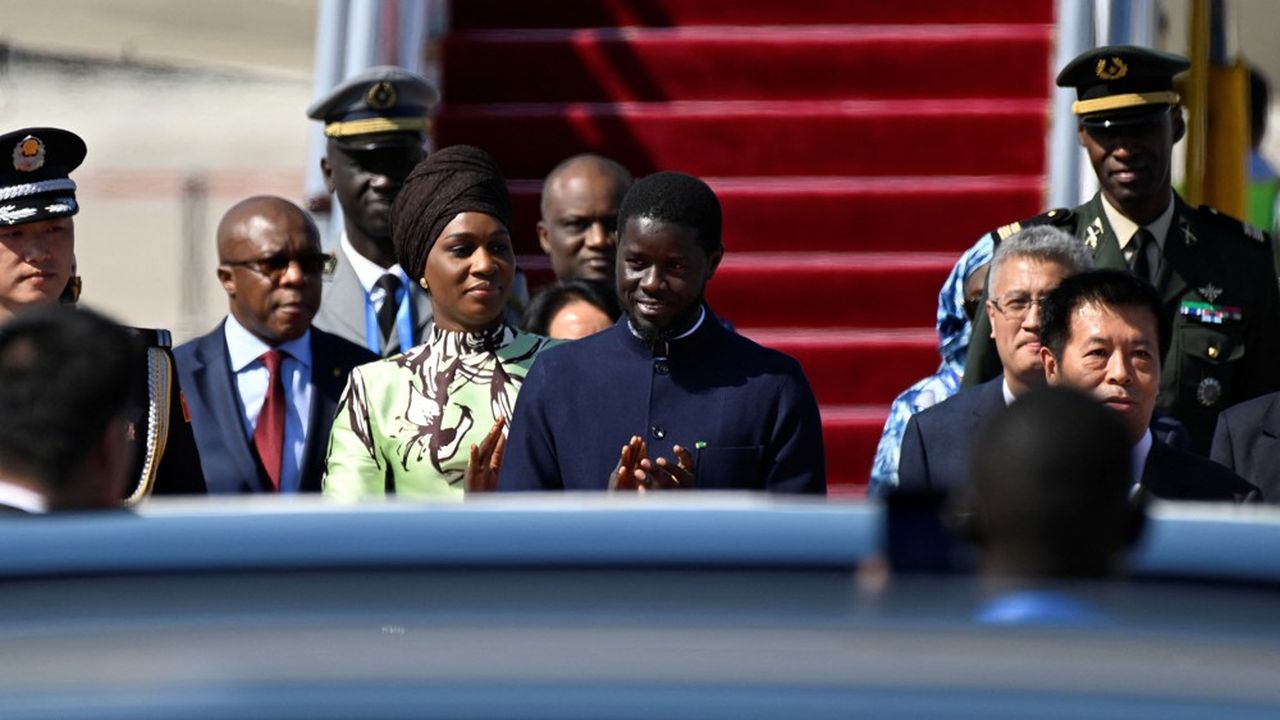
Xi Jinping rolled out the red carpet for the Senegalese president, for the first official meeting between the two heads of state. Bassirou Diomaye Faye was received this week on a state visit to Beijing, ahead of the Forum on China-Africa Cooperation (FOCAC), held from September 4 to 6.
This visit was part of the “strengthening of relations of friendship and cooperation” between the two countries, according to the Senegalese presidency, and was intended to “strengthen ties in strategic areas” such as industrialization, hydraulics and digital technology.
For Gilles Yabi, political analyst at the think tank Wathi, the state visit of Bassirou Diomaye Faye is “consistent” with the economic and diplomatic orientations of the new president, who advocates a rebalancing of Senegal’s partnerships.
“The Head of State has constantly repeated that it is necessary to have balanced trade relations with all economic players, including China and the Gulf countries, and not just with Paris,” the expert emphasizes. Today, however, France remains the leading investor in Senegal, with 17% of foreign investments in 2021.
Infrastructure projects
China and Senegal have long-standing diplomatic ties, which were suspended for nearly a decade between 1996 and 2005, until Dakar severed relations with Taiwan. In recent years, Beijing’s investments have accelerated under the terms of President Macky Sall, Diomaye Faye’s predecessor.
Several infrastructure projects, including roads, have recently been set up with Chinese funding. The latest: the construction of a 100-kilometer highway between Mbour, Fatick and Kaolack, in the west of the country, which should see the light of day in 2025. A project estimated at 460 billion CFA francs (700 million euros), financed 85% by China and 15% by the State of Senegal.
Investments down
However, Senegal does not top the list of Beijing’s main partners on the continent. “There is significant room for improvement compared to other countries in the region,” says Gilles Yabi. The country was not even among the 12 most attractive African destinations for Chinese investors according to a report published by The Economist Intelligence last year.
This meeting between the two heads of state also takes place in the context of the drying up of Chinese loans on the African continent: from nearly 7 billion dollars per year on average since 2000, they have fallen to less than a billion in 2022. A drop which can be explained in particular by the slowdown in Chinese growth.




